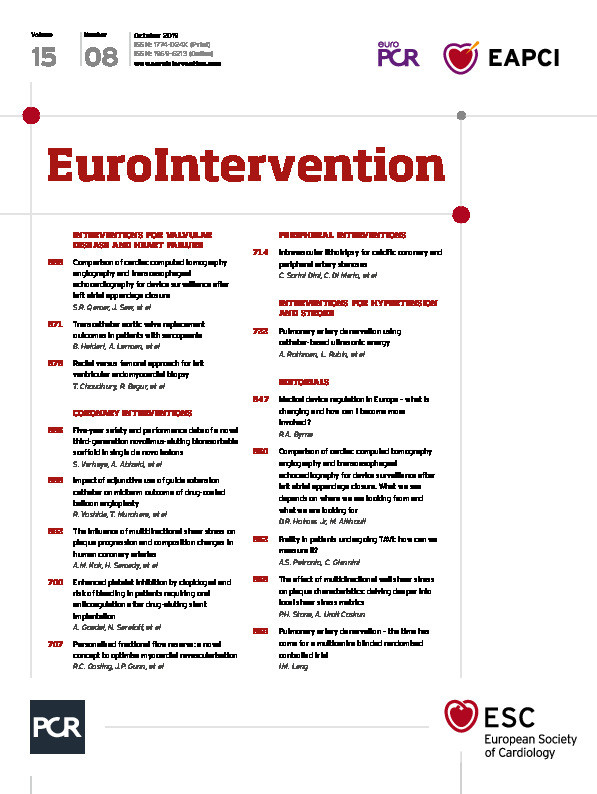
We appreciate Chhabra and colleagues’ correspondence1 regarding our recent report on the adverse events associated with the Impella® (Abiomed, Danvers, MA, USA) devices as identified in the Manufacturer and User Facility Device Experience (MAUDE) database2. We agree that the data to support the routine use of mechanical circulatory support (MCS) devices in the setting of high-risk percutaneous coronary intervention (PCI) are limited. As highlighted by the authors, lessons learned from the randomised pivotal BCIS-1 trial brought the intra-aortic balloon pump (IABP) train to a grinding halt1. While the benefits and efficacy of the Impella in the PROTECT II trial in high-risk PCI are controversial for the in-hospital outcomes, there may be a modest trend towards improved midterm outcomes3. We believe that, at present, the data to support whether the benefit of Impella outweighs the potentially serious complications in high-risk PCI are insufficient to draw definitive conclusions. With emphasis on training and proper use, we anticipate that these adverse events will decline, but it is imperative to report them systematically. We call for better participation in the public reporting via the MAUDE database.
Experienced operators report fewer adverse events with the Impella, as highlighted in the Door-To-Unload trial, which demonstrated the feasibility of a delayed revascularisation strategy (30-minute delay before reperfusion) with left ventricular unloading using the Impella CP device in anterior ST-segment elevation myocardial infarction patients4,5. In this study, there were acceptable complication rates, which are a testimony that, with training, it is feasible to achieve lower adverse events and to demonstrate that the benefits for the use of the Impella outweigh the risks associated with the device. With respect to efficacy, there is a need for a large randomised study to support the Impella versus standard-of-care IABP or inotropic support to establish the benefit of the Impella for a broader high-risk PCI population.
It is of the utmost importance to tailor decision making to each individual patient for the use of MCS in high-risk PCI and acute myocardial infarction, definitively weighing the benefits of haemodynamic support against the risk of device-related complications. In an ideal world, each indication merits its own clinical trial; however, we understand the challenges of conducting such large studies. Nonetheless, the seminal transcatheter aortic valve replacement trials, which rigorously established efficacy with the sickest patients initially and eventually demonstrated safety and clinical feasibility in lower-risk cohorts, show that such trials are feasible. While the jury is out, we can gain insight from voluntary post-marketing surveillance registries such as MAUDE to better understand the safety profiles of MCS devices. However, a mandatory post-marketing registry with standardised clinical outcomes and adverse event reporting akin to the Society of Thoracic Surgeons/American College of Cardiology TVT (Transcatheter Valve Therapy) registry would be preferable.
Conflict of interest statement
The authors have no conflicts of interest to declare.

